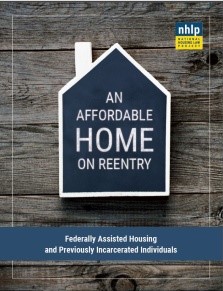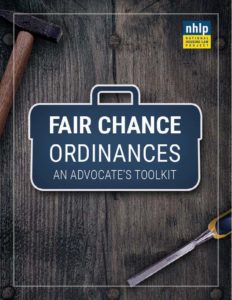Housing Opportunities for People Reentering
Expanding Housing Opportunities for People Who Have Come in Contact with the Criminal Justice System
NHLP established its Reentry Initiative in an effort to increase access to affordable housing for people who have had contact with the criminal justice system. For many individuals returning to the community, federally assisted housing is the only option for decent and affordable shelter, but harsh admission policies often shut out people with criminal records. NHLP advocates for public housing authorities and private owners of federally assisted housing to adopt more flexible admission policies and to set aside units for individuals returning to the community. Because restrictive screening policies frequently act as a barrier to other types of affordable rental housing in a community, NHLP also supports the adoption of broad fair chance policies at the local level.
NHLP offers in-person and online training to legal services and other housing advocates on reentry issues, engages in federal policy advocacy aimed at increasing housing opportunities for people with criminal records, and partners with housing and reentry agencies advocating for change on a local level.

 NHLP has also created two publications for advocates and organizers working on reentry issues:
NHLP has also created two publications for advocates and organizers working on reentry issues:
An Affordable Home on Reentry is an essential tool for advocates working with people who have criminal records and are seeking access to federally assisted housing. It provides a detailed overview of the admissions process for the major federal housing programs, explains how to challenge an application denial, and provides guidance on how advocates can impact local reentry policies and practices, now with a new section on crime free and nuisance ordinances.
Fair Chance Ordinances: An Advocate’s Toolkit offers organizers and advocates tools for developing a local fair chance policy aimed at increasing housing access by reducing the use of criminal records screening in the rental housing application process. The toolkit discusses the key elements of a fair chance policy and highlights the various considerations that need to be addressed during the drafting of a fair chance ordinance.
